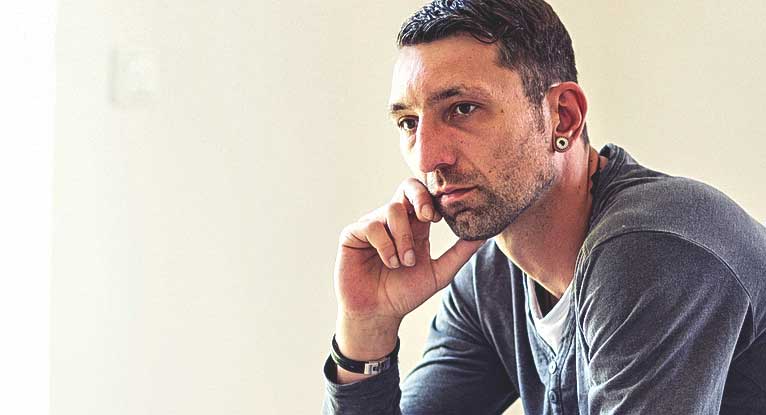
Abnormal levels of dopamine transporters in the brain, once believed to be a biomarker for attention-deficit hyperactivity disorder (ADHD), may be explained by long-term use of stimulant medications like Ritalin, according to research released Wednesday.
Dr. Gene-Jack Wang, a researcher at Brookhaven National Laboratory, published a study in the journal PLOS One examining levels of dopamine density in ADHD patients who had never taken stimulants. He found that the density of this important neurotransmitter's transporter rose 24 percent after a year of stimulant treatment.
The study throws a wrench into the biological understanding of ADHD and medications used to treat it. Currently, ADHD is primarily diagnosed based on a collection of symptoms, and the disorder affects roughly 10 percent of school-aged children.
Medications like Ritalin work by blocking the transportation of dopamine that would normally leave the brain, thus increasing its density, but few studies have been done on how long-term treatment affects dopamine transmission when a patient stops taking stimulant medication.
Dopamine Transporters and ADHD
Dopamine is an important chemical in the brain. Low levels of the neurotransmitter are associated with, among other things, high levels of novelty-seeking behavior, such as participating in high-risk sports and abusing drugs. This is why many speculate that people with ADHD have more dopamine transporters, so levels of the neurotransmitter would be lower in people with ADHD.
“Dopamine is a very interesting neurotransmitter,” Wang said Wednesday in an interview with Healthline. “We don’t completely understand its full function.”
The standing belief in biochemistry was that low dopamine transporter levels served as a diagnostic marker for ADHD.
One of the most widely cited studies on the subject was published in The Lancet in 1999. It stated that patients with ADHD showed a 70 percent increase in dopamine transporter density, suggesting that it could be used as a way to screen for ADHD.
One of the critics of the study is actually one of the most outspoken critics of ADHD in general—Fred Baughman, author of The ADHD Fraud: How Psychiatry Makes ‘Patients’ Out of Normal Children and former medical adviser to an anti-psychiatry Scientology group.
He challenged the Lancet study results and claimed that the rise in transporter density was caused by medication, but the study authors said Baughman’s claim “…is grossly premature and devoid of any scientific basis.”
That’s not necessarily true anymore.
“In this study, we only proved that increased dopamine transporter levels cannot be used as a biomarker,” Wang said.
Testing Dopamine Levels in ADHD Patients
It’s difficult to find adults with ADHD who have never been treated with medication, but researchers managed to recruit 18 test subjects from Duke University, Mt. Sinai Hospital, and the University of California at Irvine.
Each patient was given doses of Ritalin tailored to fit his or her needs, and subjects continued treatment for a year. Before and after the test period, Wang and his colleagues examined their brains using a positron emission tomography (PET) scan to study levels of dopamine in their brains.
“Compared to 11 healthy people, we found no difference in transporter levels before treatment. However, after treatment, the transport levels were much higher than the baseline,” Wang said.
Though stimulant medication is typically a first-line treatment for ADHD, few studies have examined long-term stimulant exposure and how it affects brain chemistry.
Further research may reveal that the increase in dopamine transporters is not a sign of ADHD, but rather a consequence of chronic stimulant medication treatment, Wang said. It could also provide more insight into how common drugs lose their efficacy over time, leading patients to resort to higher-dose treatments.
One of the patients in Wang’s study who had never received ADHD therapy was having difficulty in college and in her marriage, but she loved to paint. After taking medication she did better in school and with personal relationships, but she lost her creative drive, Wang said.
“That’s the problem with ADHD,” he said. “Many [patients] are very smart kids but they have problems, especially in school. That means they may need medication to function as normal people.”









